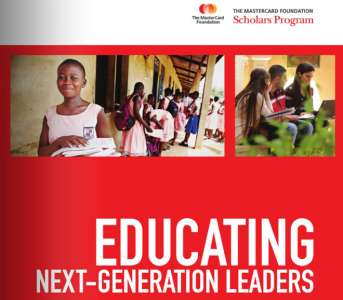
LFS Professional Programs Welcome MasterCard Scholars
Oct 2, 2015
The MasterCard Scholars Program is an initiative that provides students from economically disadvantaged communities in Africa with opportunities to receive higher education and develop skills to contribute to social and economic progress in their home countries.
Aboubakar, a student in our Masters of Food and Resource Economics program, will focus his research on the constraints facing rural farmers and engaging youth to agribusiness in order to help them be free from poverty.
“Many of the world’s poorest people are dependent on agriculture,” explains Aboubakar. With a BSc degree in Agricultural Economics and Agribusiness from the National University of Rwanda already under his belt, he aspires to contribute to the development of his country by creating a program that will empower and engage youth to utilize Agripreneurship (mixture of entrepreneurship and agriculture), and subsequently tackle youth unemployment issues in Rwanda.
He also hopes to educate others in his home country about how to successfully operate a farm business as well as how to tackle the issues that face global agribusiness managers.
Alfred is a graduate of the Kwame Nkrumah University of Science and Technology in Ghana, specializing in Land Reclamation and Rehabilitation of the Forest Resource Technology program. He is studying in our Masters of Land and Water Systems program.
“My long-term career goal is to be a professor and an environmental advocate, so I can help develop the needed human resource base for effective environmental management in Ghana,” he said, adding that he’s currently in the process of initiating the formation of the Land Reclamation and Environmental Conservation Society, in order to advocate the importance of conserving safe and ecologically healthy environments for posterity.
“I’ve experienced firsthand the effects of resources degradation and depletion,” he said. “I hope to help strengthen the coordination between academia, industry and local communities in conserving a safe and ecologically healthy environment for posterity.”